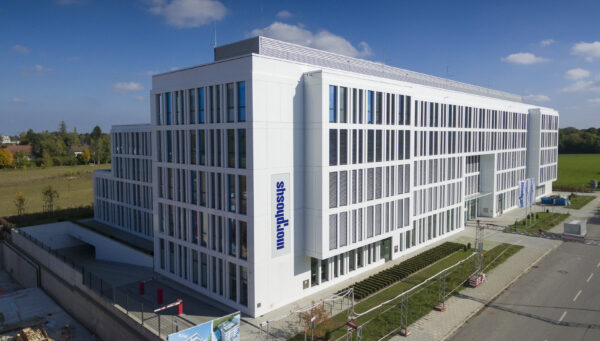
The Food and Drug Administration has approved a new drug for patients with an aggressive form of lymphoma who have failed on prior treatment, but are not eligible for stem cell transplants.
MorphoSys, based near Munich, Germany, and Wilmington, Delaware-based Incyte said Saturday that the FDA had given accelerated approval to Monjuvi (tafasitamab-cxix), combined with Bristol-Myers Squibb’s Revlimid (lenalidomide), in relapsed or refractory diffuse large B-cell lymphoma in adults ineligible for autologous stem cell transplant. The company said the approval was the first for a second-line treatment for adults who have progressed during or after first-line treatment.

Behavioral Health, Interoperability and eConsent: Meeting the Demands of CMS Final Rule Compliance
In a webinar on April 16 at 1pm ET, Aneesh Chopra will moderate a discussion with executives from DocuSign, Velatura, and behavioral health providers on eConsent, health information exchange and compliance with the CMS Final Rule on interoperability.
Shares of MorphoSys were up more than 5% premarket on the Nasdaq Monday morning. Shares of Incyte were also up more than 5% premarket, on the same exchange.
Monjuvi is a monoclonal antibody that targets CD19, the same antigen target used by the three approved CAR-T cell therapies – Novartis’ Kymriah (tisagenlecleucel) and Gilead Sciences’ Yescarta (axicabtagene ciloleucel) and the latter company’s recently approved Tecartus (brexucabtagene autoleucel) – and a bispecific antibody, Amgen’s Blincyto (blinatumomab). However, while Kymriah and Yescarta are both approved for DLBCL, Monjuvi targets patients who would not be able to tolerate cell therapy.
“The FDA approval of Monjuvi brings a new treatment option to patients in dire need across the United States,” University of Lyon, France, chair of clinical hematology Dr. Gilles Salles said in a statement on behalf of MorphoSys. Salles was lead investigator in the Phase II L-MIND clinical trial that led to the accelerated approval.
Results from L-MIND showed an overall response rate of 55%, including a complete response rate of 37%. Median duration of response was 21.7 months.

A Deep-dive Into Specialty Pharma
A specialty drug is a class of prescription medications used to treat complex, chronic or rare medical conditions. Although this classification was originally intended to define the treatment of rare, also termed “orphan” diseases, affecting fewer than 200,000 people in the US, more recently, specialty drugs have emerged as the cornerstone of treatment for chronic and complex diseases such as cancer, autoimmune conditions, diabetes, hepatitis C, and HIV/AIDS.
The partnership between MorphoSys and Incyte dates back to an agreement the two companies made in January, worth potentially more than $2.7 billion. In a note to investors Monday morning, RBC Capital Markets analyst Brian Abrahams wrote that while it was generally accepted that Monjuvi would win approval, that was not a sure thing, and the FDA decision thus removes any remaining uncertainty, in addition to coming a month ahead of the expected decision date. Moreover, he wrote, with Incyte’s lead drug, Jakafi (ruxolitinib), expected to lose patent protection in 2027, the approval of Monjuvi has potential to diversify its business away from that drug.
Photo: MorphoSys












